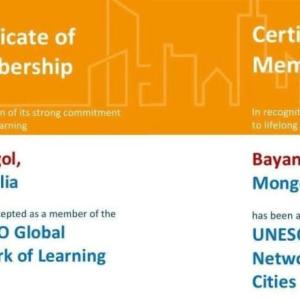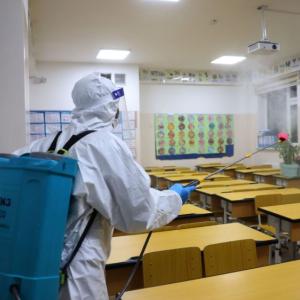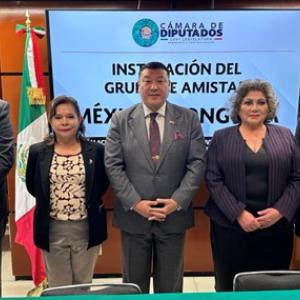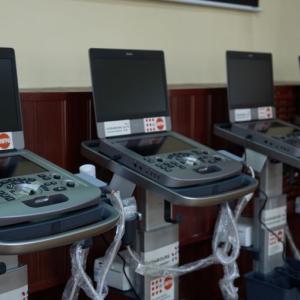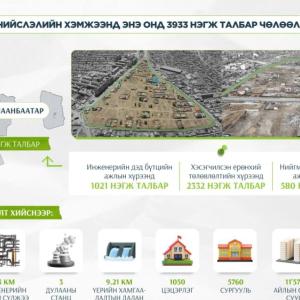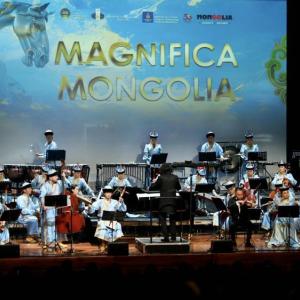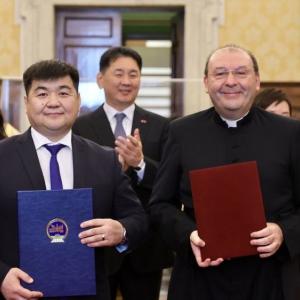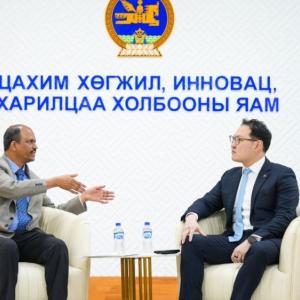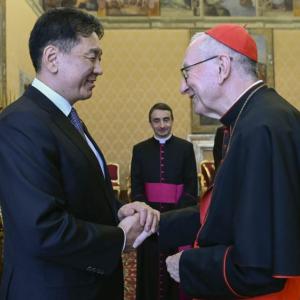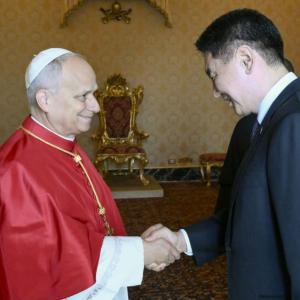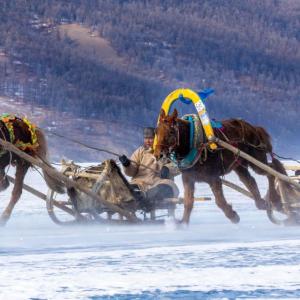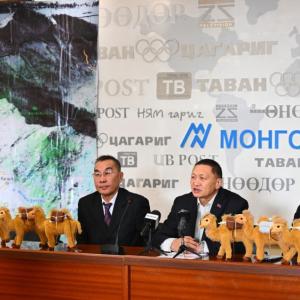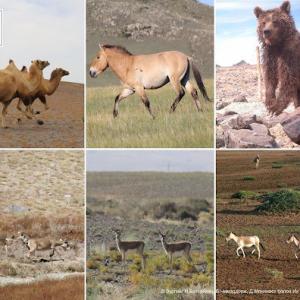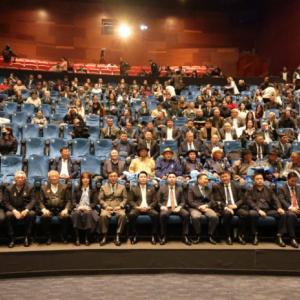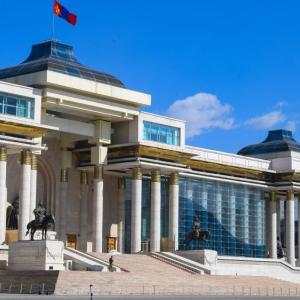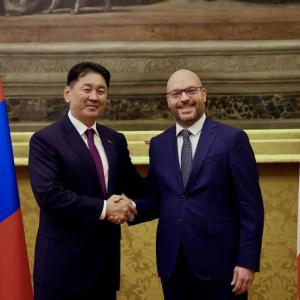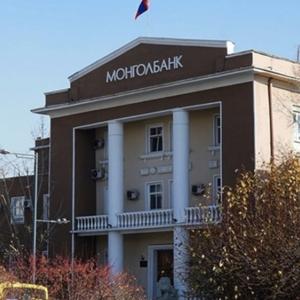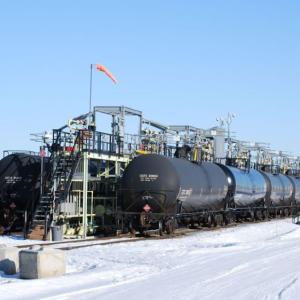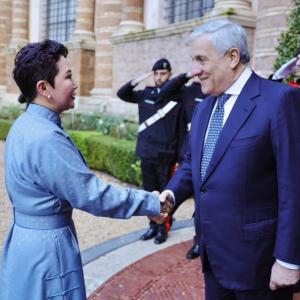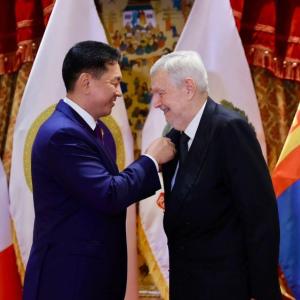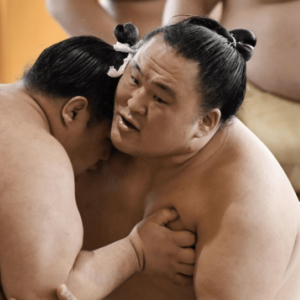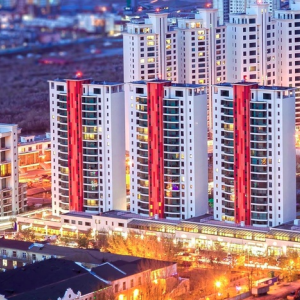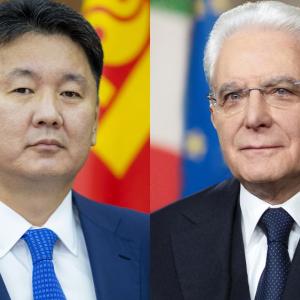President Khurelsukh: The Most Effective Means to Address Complex Issues is Peaceful Dialogue
Politics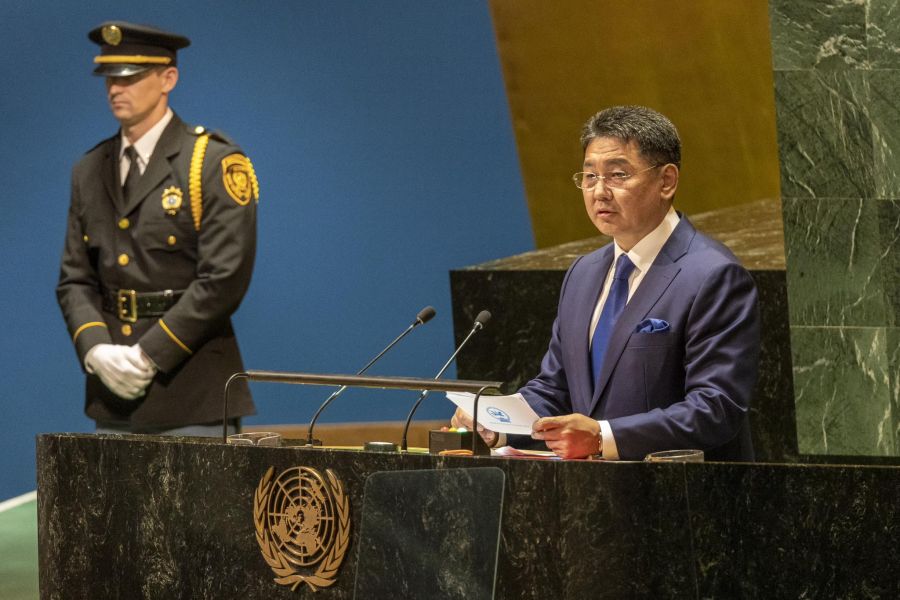
STATEMENT BY H.E. MR. KHURELSUKH UKHNAA, PRESIDENT OF MONGOLIA,
AT THE GENERAL DEBATE OF THE 78th SESSION OF THE UNITED NATIONS GENERAL ASSEMBLY
(New York, 20 September 2023)
Mr. President,
Mr. Secretary-General, Distinguished delegates, Ladies and gentlemen,
I wish to convey my heartfelt congratulations to the
President of the 78th session of the United Nations General Assembly, Your
Excellency Mr. Dennis Francis, and wish every success in the work of the session.
I’m confident that under your able leadership, the 78th
session of the General Assembly will facilitate comprehensive discussions on a range
of critical issues facing the world, and will present constructive solutions for
peace, prosperity, and sustainability.
We can not only indulge in peace and harmony, but we can entrust
a peaceful and prosperous world to future generations by sincerely yearning for
peace, security, and sustainable development, and by devoting efforts and
financial resources to consolidate the political, economic, environmental, and
socio-cultural foundations that sustain the world.
Mr. President,
Despite the world's collective accomplishment in overcoming
the threat of the global pandemic, we are still facing a range of challenges
stemming from geostrategic and geopolitical tensions, socioeconomic crises,
climate change and swift technological advancements.
The United Nations, its Charter and international legal
system are continuing to play an important role in strengthening global peace and
security, and fostering international cooperation.
To collectively overcome current challenges, conflicts, confrontations,
and mistrust, the countries of the world should strive for greater unity,
trust, and friendship, and endeavor to further strengthen the role and position
of the United Nations as a global community of human solidarity.
Mongolia commends and supports the initiatives outlined in
the UN Secretary- General’s report "Our Common Agenda", including the
recent "New Agenda for Peace”, which offer proactive solutions to global challenges
in international relations by amplifying preventive diplomacy and reinvigorating
multilateral cooperation and dialogue.
The rapid advancement of digital technology is unlocking new
prospects for global development. Yet on the other hand, it is also reshaping
the landscape of threats that jeopardize world peace and security, such as
terrorist attacks, their financing, money laundering, and proliferation of weapons
of mass destruction.
Therefore, in order to combat them effectively it is vital for
the countries across the globe and international community to collaborate in
all aspects, exchange information, and refine the international legal framework.
In this context, Mongolia fully supports the initiatives and
activities of the United Nations and its system organizations and has been actively
contributing to the establishment of a “Comprehensive International Convention
on Countering the Use of Information and Communications Technologies for Criminal
Purposes”.
Mr. President,
Today’s tense and complex geopolitical dynamics are
undermining both global and regional security, and provoking misunderstandings
among nations. Consequently, the most effective means to address these complex issues
is peaceful dialogue.
It has been more than three decades since Mongolia declared
its territory as nuclear-weapon-free and we have been fully supporting international
community’s efforts for disarmament and non-proliferation of nuclear weapons.
In order to make a contribution to our regional peace and
security, Mongolia has successfully hosted the International Conference of the Ulaanbaatar
Dialogue on Northeast Asian Security in June of this year for the eighth time.
The United Nations Under-Secretary-General and High Representative
for Disarmament Affairs, Ms. Izumi Nakamitsu, participated in the conference and
highlighted that the "Ulaanbaatar Dialogue" mechanism is becoming a significant
platform in establishing peace and security, and in strengthening
confidence-building measures in the Northeast Asia.
I am pleased to note that Mongolia's efforts in pursuing regional
peace and security within the framework of its peace-loving, open, and multi-pillar
foreign policy are expanding and the number of participating countries is growing
year by year.
UN Secretary-General António Guterres praised Mongolia as “a symbol of peace in a troubled world” when he visited my country last year. I am also delighted to note that His Holiness Pope Francis during his recent visit to Mongolia stated that “A profound spiritual sensitivity belongs to the very fibre of your cultural identity, and it is proper that Mongolia should be a symbol of religious freedom”. Furthermore, His Holliness called upon the international community “on this earth devastated by countless conflicts, there be a renewal, respectful of international laws, of the conditions of what was once the Pax Mongolica, namely, the absence of conflicts”.
Mr. President,
UN Peacekeeping stands as one of the essential instruments
in maintaining international peace and security. It continues to play a pivotal
role in halting and preventing armed conflicts, alleviating humanitarian crises,
and fostering an environment conducive to the progress of social development.
For this cause, we consider UN Peacekeeping operations a vital
part of the United Nations and multilateral cooperation efforts for peace.
Over the past 20 years, through its deployment of more than 20,000
peacekeepers to hot spots around the world, Mongolia has been honorably fulfilling
its obligations to the international community in the maintenance of global peace
and security.
Mongolia emphasizes the meaningful participation of women in
UN Peacekeeping operations and believes that strengthening the role of women at
its all levels will have significant impacts on the maintenance of
international peace and security, and on the peaceful resolution of conflicts.
To contribute to the implementation of the UN Security
Council Resolution on Women, Peace, and Security (UNSCR 1325), we successfully organized
an international conference on “Strengthening the Role of Women in Peacekeeping”
in June 2022, where participants shared and exchanged their experiences and
ideas on best practices and lessons learned as well as challenges and obstacles
encountered in the field.
We are also aiming at implementing our national policies and
activities on ensuring gender equality in line with the Women, Peace, and Security
Agenda.
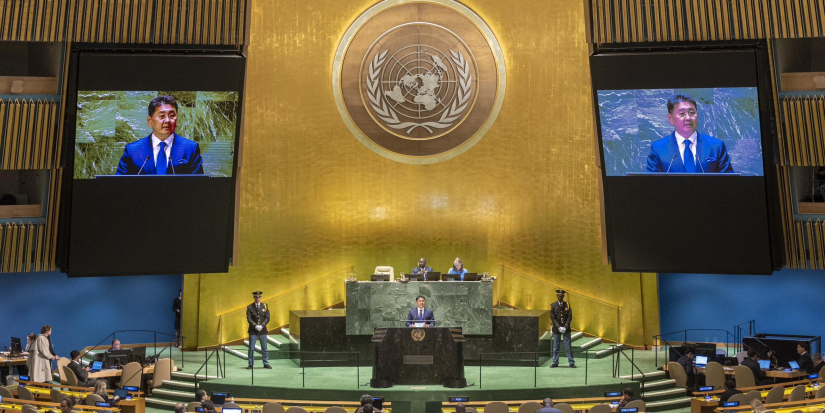
Mr. President,
As nations, it is our collective aspiration to coexist
harmoniously and equitably in this world, regardless of our ethnicity, race, age,
gender, religion, or cultural distinctions.
However, the principle of "leaving no one behind in
development" defined by us has not been fully realized so far. Disparities
still persist both in the levels of development among various countries and in
the living conditions experienced by different groups of people.
The recent global challenges such as the pandemic, climate
change, geopolitical conflicts, financial and debt crises, poverty, and hunger
have significantly hindered development, particularly in developing countries
where progress towards achieving the Sustainable Development Goals (SDGs) is lagging.
Eventhough, we have already passed halfway to the deadline for
the 2030 Agenda, which is the roadmap for fostering trust, unity and
development, the UN Report 2023 reveals that only 12 percent of the SDG targets
are on track, while progress on 50 percent is weak and insufficient and progress
on 30 percent has stalled or even reversed.
If we are unable to achieve our goals, it is evident that the
further path for development and progress for mankind will be bleak.
It is critical time to be responsible, as the UN
Secretary-General Antonio Guterres warned, not to turn the 2030 Agenda for Sustainable
Development into a “mirage of what might have been”.
Prior to the pandemic, the annual SDG funding gap stood at 2.5
trillion US dollars, but as per the OECD, it has now surged to at least 4.2
trillion dollars and 52 least developed countries are at risk of serious debt
crisis. Therefore, there is an urgent need to develop a global plan for financing
the SDGs.
Mongolia presented its second National Voluntary Review Report
at the High-Level Political Forum on Sustainable Development of the United
Nations held last July in New York. According to the report, Mongolia has made
a notable progress in 15 of the goals, while the implementation of one goal has
been assessed as regressive.
It has been estimated that Mongolia needs additional
spending of approximately 18 percent of GDP annually on average until 2030 to achieve
the SDG targets.
Mr. President,
Climate change is sending a distress call and warning alarm
of impending threat that is looming over human life and the existence of humanity
on the Earth.
If we do not follow a resolute path to preserve our Mother Earth
right now, she will inevitably find her own way to survive, even if it means doing
so without us.
The 2023 report of the Intergovernmental Panel on Climate Change
(IPCC) warns that "If global temperature increases by half a degree, it
will lead to increased poverty, heatwaves, sea-level rise, coral reef decline
and habitat loss and severe drought. Every increment of global warming will be immeasurably
costly”.
Therefore, governments should take urgent measures to
implement the Paris Agreement, heed the guidance of scientists, raise public
awareness, regulate resource utilization, preserve, and restore biological diversity,
foster ecologically friendly and economically efficient technologies, such as the
use of renewable energy, and substantially bolster climate financing.
With this determination, in 2023, Mongolia became one of the
first countries to adopt the SDG Finance Taxonomy by introducing major
legislative reforms aimed at increasing foreign and domestic investment.
Mongolia is effectively implementing the national movements
"Billion Trees" and "Food Supply and Security”, as well as successfully
hosted the World Export Development Forum focusing on the further development
of green, digital, and inclusive trade and economic relations.
Furthermore, in the Orkhon Valley, which has been inscribed on
the World Heritage List, we commenced a major development project to rebuild
Kharkhorum, the ancient capital of Mongols, into an environmentally friendly,
smart eco-city for green development.
I am also pleased to inform that Mongolia has proceeded into
the preparations for hosting the 17th Conference of the Parties (COP17) of the
United Nations Convention to Combat Desertification (UNCCD) in Ulaanbaatar in 2026.
Mr. President,
At the United Nations, Mongolia actively endeavors to
protect the interests of landlocked developing countries (LLDCs) and to present
both the challenges and opportunities of countries with special needs to the international
community.
Currently Mongolia is working as Vice-Chair of the Group of Landlocked
Developing Countries at the United Nations and is making advancement on the
initiative to set up a group of LLDCs in the World Trade Organization (WTO) and
the International Civil Aviation Organization (ICAO).
Henceforth, during the 41st session of the Assembly of the
ICAO held in Montreal, Canada, in September 2022, Mongolia submitted a Working
Paper on “Improving Air Connectivity in LLDCs”, which received a wide support from
its Member States.
Moreover, Mongolia attaches particular importance to developing
the International Think Tank of the LLDCs, an intergovernmental organization, established
in Ulaanbaatar in 2017, and strengthening its research capacities.
We believe that based on the practical experiences and
lessons learned from the implementation of the Vienna Program of Action the
Third United Nations Conference on LLDCs to be held in Kigali, Rwanda, in 2024,
will be a critical occasion to adopt a renewed development framework for the landlocked
developing countries for the next decade.
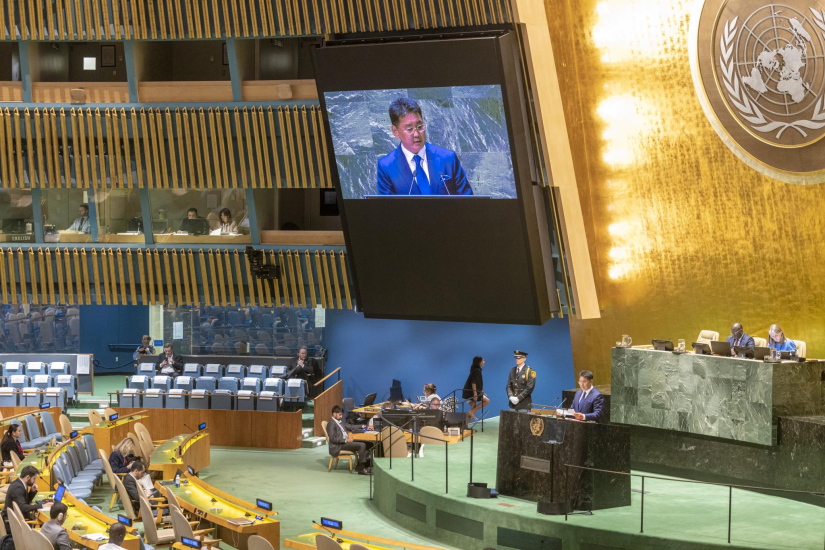
Mr. President,
It is commendable that the 78th session of the United
Nations General Assembly drew global attention to health issues by convening
the three high-level meetings on Universal Health Coverage, Pandemic
Preparedness, Prevention and Response, and Fight against Tuberculosis and adopting
their political declarations.
I am confident that outcomes of these meetings will make a significant
contribution to the international efforts in this field, and they will be
reflected as well in the national program "Healthy Mongolian" implemented
at my own initiative.
Mongolia fully supports and expresses its commitment to contribute
to the negotiation on the development of the WHO convention, agreement or other
international instrument on pandemic prevention, preparedness, and response as
agreed by the Member States during the Second Special Session of the World Health
Assembly.
We believe that the establishment of the international legal
document will be of great importance for timely and equitable access to, and distribution
of, pandemic-related vaccines, treatments, and diagnostics.
On behalf of the people of Mongolia, I wish to express my
deep gratitude to all health care workers around the world, who selflessly and
tirelessly worked to save people’s lives and their health.
My gratitude also goes to the World Health Organization,
their employees, and Director-General Dr. Tedros A. Ghebreyesus, who played an important
role in overcoming the tough times of the global pandemic with less damage.
![]() We call upon Member States to support and
cooperate comprehensively in
We call upon Member States to support and
cooperate comprehensively in
strengthening the World Health Organization’s role and position
while broadening its range of activities.
Mr. President,
This year marks the 75th anniversary of the adoption of the
Universal Declaration of Human Rights.
As a democratic country, Mongolia fully advocates for human
rights, freedom and justice, and the principles of promoting gender equality
and human rights in political, social, cultural and economic spheres, are enshrined
in the Constitution of Mongolia.
Building a world free of gender inequality is our shared goal,
and it is our collective duty and responsibility to collaborate in its realization.
Just as women's roles and contributions are essential for
both the harmony and prosperity of nations and well-being of families, women and
female leaders play a critical role in security and development of humankind.
Last June, Mongolia successfully organized the Female Foreign
Ministers’ Meeting, where the participants conducted constructive discussions on
presenting solutions to pressing issues of mankind and international community,
including global peace and security, climate change, and food security. As an
outcome of the meeting, "Ulaanbaatar "Declaration" was adopted.
To further advance this achievement, we propose to convene the
"World Women's Forum" in Mongolia in 2024. We call upon countries to
cooperate in support of this initiative.
Mr. President,
In this era of profound transformations in the international
order and norms, the role and significance of multilateral cooperation and the
international community is growing enormously.
Therefore, Mongolia believes that it is important for the UN
Member States to actively participate in the intensification of the reforms of
the United Nations, particularly in furthering the negotiations of the reform of
the UN Security Council.
I have confidence that the Summit of the Future which will
convene in September 2024 under the theme "Multilateral Solutions for a
Better Tomorrow”, will be a decisive event to reaffirm the principles enshrined
in the UN Charter, revive multilateralism, fulfill commitments, seek solutions
to global challenges, and rebuild trust among Member States.
Today, our leadership plays a pivotal role in shaping the
destiny and well-being of our nations. Humanity is counting on our sagacious
and visionary policies and initiatives that are in the best interest of the future
generations and prioritize global peace, security, and the environment.
Let's act together for peace and solidarity in the world and
for well-being of the future generations.
May the Eternal Blue Sky bless the mankind forever! Thank you
for your attention.
 Ulaanbaatar
Ulaanbaatar






